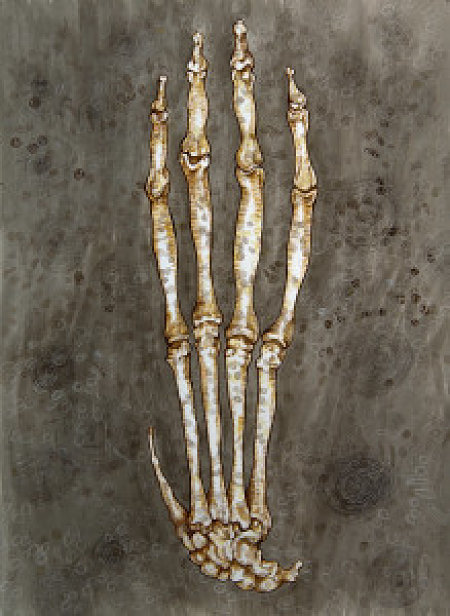
Two Eternities
*
It was mid-March when they’d left. Still winter in the mountains. They’d started out early on a Saturday morning and, despite a fierce storm, had reached the cabin by dusk the next day. (About the same hour it was now.) Exhausted from the rugged trek, they’d plopped down, side-by-side, on the porch steps and divested themselves of their backpacks and skis. That evening they kindled a fire and set a pot of white beans and andouille sausage simmering in the stone fireplace, and as the flames grew and warmed the room, the mood within turned loud and raucous. Cassidy had brought along a bota of cheap red wine, and while Jamison stirred away at dinner like a scullery maid, the two of them sang and danced and clapped their hands as if they were revelers celebrating the solstice.
Later, when they’d finished eating and had tidied up the makeshift mess hall, Cassidy unfurled his bedroll before the fire and rested his head against his rucksack, trying to gather back what the storm and the wine and the altitude had taken from him that day. Jamison was uncharacteristically quiet as he made his own arrangements beside the fire, and after a while, Cassidy asked him if anything was wrong.
Jamison, eyes shut, told him no. God no. He seemed to think for a moment, and then he reached behind his back and knocked around inside his rucksack, groping fiendishly for who knew what. A moment later he produced a slim, clothbound volume, which he proceeded to fling into Cassidy’s lap.
What’s this?
What’s it look like?
Cassidy raised the book toward the firelight. Walden; or Life in the Woods, by Henry D. Thoreau. What? he’d laughed, turning to Jamison. You want me to read you a bedtime story?
Why not?
Forget it.
Come on.
What do I look like, he said. A wet nurse?
The crackling of the fire filled the one-room cabin, and for a long time it was the only sound between them. Then, in a dark murmur, Jamison began reciting the book from memory and, to Cassidy’s great surprise, did not stop with the opening lines. Page after page passed Jamison’s thin, white lips until Cassidy, unable to contain himself, lifted the volume that had been tossed into his lap, and joined in the makeshift performance.
*
The next morning came far too soon. But while they were gathering their gear to return home, Jamison pointed to the book, which was lying on the plank floor next to Cassidy’s hobnail boots. By the way, Cassidy, he said, the volume’s yours. Consider it a souvenir from your intellectual superior.
Cassidy looked at the thing. Then over at Jamison.
Don’t sweat it, Jamison shrugged. I’ve got a copy. He tapped his forehead with his finger and grinned. Up here.
Cassidy had picked the book up, cautiously, and had lain it on a high shelf near the fireplace while he rolled up his sleeping bag and packed his clothes. He wasn’t certain they were good enough friends that he should accept something as personal as a book from Jamison but decided he would wait until after they were home again before he chose whether or not to keep it.
You’re lucky, you know that, Jamison? he’d said. You’ve got a gift. A real gift. If my memory were half as good as yours, I’d be twice the man you are.
Jamison smiled. A man, he said, drifting into another of his ridiculous quotes, is rich in proportion to the number of things which he can afford to let alone.
